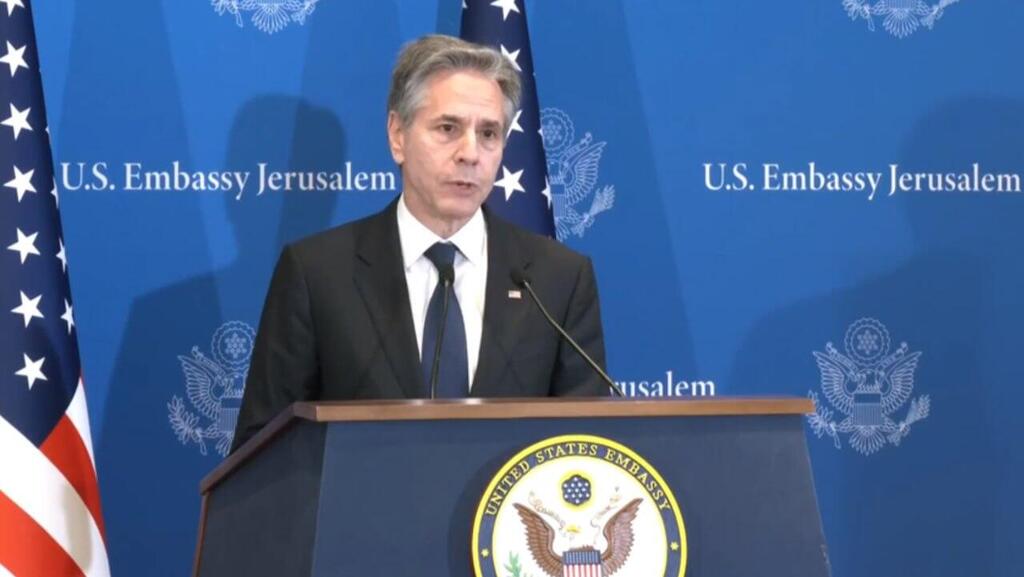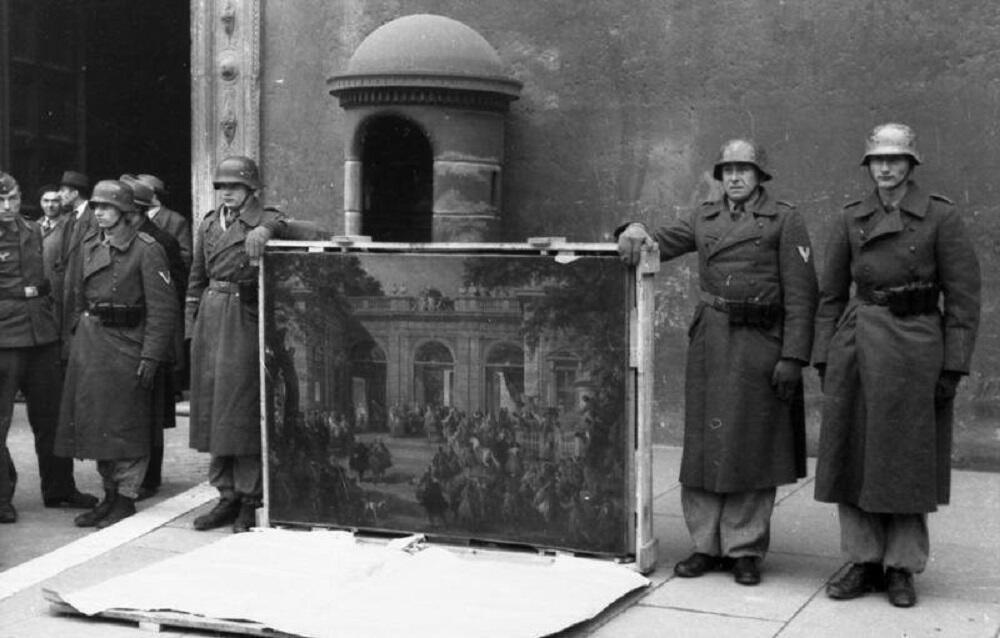A landmark report on art restitution published on Tuesday sheds light on the global efforts to return art and cultural properties looted during the Holocaust.
More stories:
The report, entitled “Holocaust-Era Looted Cultural Property: A Current Worldwide Overview” and co-authored by the World Jewish Restitution Organization (WJRO) and the Conference on Jewish Material Claims Against Germany (Claims Conference), reveals mixed progress across 47 surveyed countries, with seven making significant strides but 24 showing minimal to no advancement.
At an unveiling event by the WJRO and the U.S. State Department, the report, U.S. Secretary of State Antony Blinken highlighted the occasion by announcing an international endorsement of Best Practices in art restitution by 21 countries, a first in nearly 15 years aimed at bolstering the 1998 Washington Conference Principles on Nazi Confiscated Art.
“Of the millions of works of art and cultural property stolen by the Nazis, countless objects still have not been returned to their owners. Today, too many governments, museums, dealers, galleries and individuals still resist restitution efforts… while heirs confront staggering legal and financial barriers as they go up against opponents whose resources vastly outmatch their own,” said Blinken. He went on to say, “Today, the State Department is proud to announce Best Practices to help overcome some of these hurdles.”
WJRO President Gideon Taylor emphasized the report’s call for enhanced focus on private collections and the importance of reconnecting heritage with rightful owners.
"Restitution from public bodies or private individuals is not just about returning what was taken; it's about reconnecting families and communities with their heritage," he said.
"Over the past 25 years, there has been significant progress, but much work lies ahead. The endorsement by 21 countries of these Best Practices is of tremendous importance as it sets out a road map for the future. We urge other countries, as well as museums, auction houses, dealers and private possessors to join us in ensuring justice and that rightful owners and their heirs are reunited with their cultural treasures."
The report highlights advancements and areas needing improvement in global art and cultural property restitution over the last quarter-century. Although claims processes exist in many nations and some have established restitution commissions, the majority have not, leading to a low number of successful restitutions, particularly for privately held items.
Progress varies widely: seven countries have shown major progress, three substantial, 13 some and 24 little to no progress, judged by criteria including historical and provenance research, claims processes and actual restitutions made. The need for further provenance research, transparency and claims facilitation remains critical, especially for private collections.
In response to this global report, Sharon (Glattstein) Singer, 62, from New York City whose family hails from Edelény, Hungary, explained the importance of the return of her family’s ancestral shofar. "My grandfather’s shofar was hidden in the attic of our home in Hungary, before my family was sent to various concentration and labor camps during the Holocaust. It was last seen in the town’s library," she said.
"For us, the shofar represents more than just an object; it embodies our family's history and connection to our heritage. It is imperative that Hungary honors its moral obligation and facilitates the return of this cherished artifact."
Stuart E. Eizenstat, the U.S. secretary of state’s special advisor on Holocaust issues, emphasized the importance of transparency in restitution efforts, stating, "Transparency is key to the just and fair restitution and return of Nazi-looted art and cultural objects to survivors and their heirs. The recently endorsed Best Practices share lessons learned, including the importance of conducting and publishing provenance research, removing legal barriers to restitution, and recognizing that looted art includes pieces sold under duress."
"We strongly encourage other countries to join the United States in endorsing the Best Practices, which were developed through intensive collaboration by an international network of special envoys and representatives responsible for Holocaust issues. The Best Practices will help the implementation of the Washington Principles and achieve further justice for Holocaust survivors and their heirs,” said Ellen Germain, Special Envoy for Holocaust Issues at the U.S. Department of State.
“[A]s our generation of survivors slowly fades away, time is of the essence. The time to right a historic wrong is now. For us Holocaust survivors [these] works of art are part of our cultural heritage, part of our lives, part of our past. They are the silent witnesses of the lives and loves of individuals, families and communities who were murdered cruelly and whose memories we cherish,” said Ambassador Colette Avital, Holocaust survivor and Chairperson, Center of Organizations of Holocaust Survivors in Israel.




